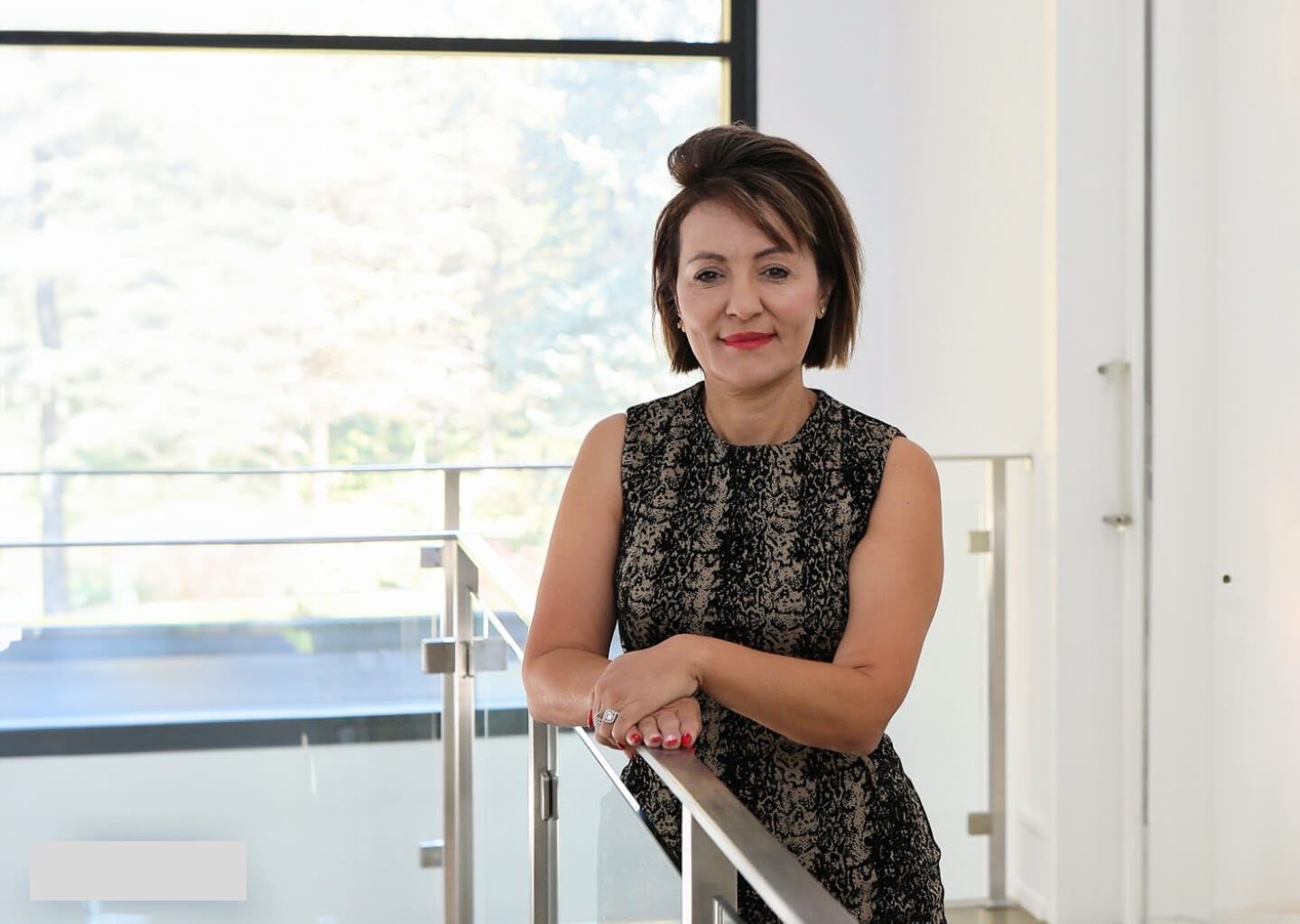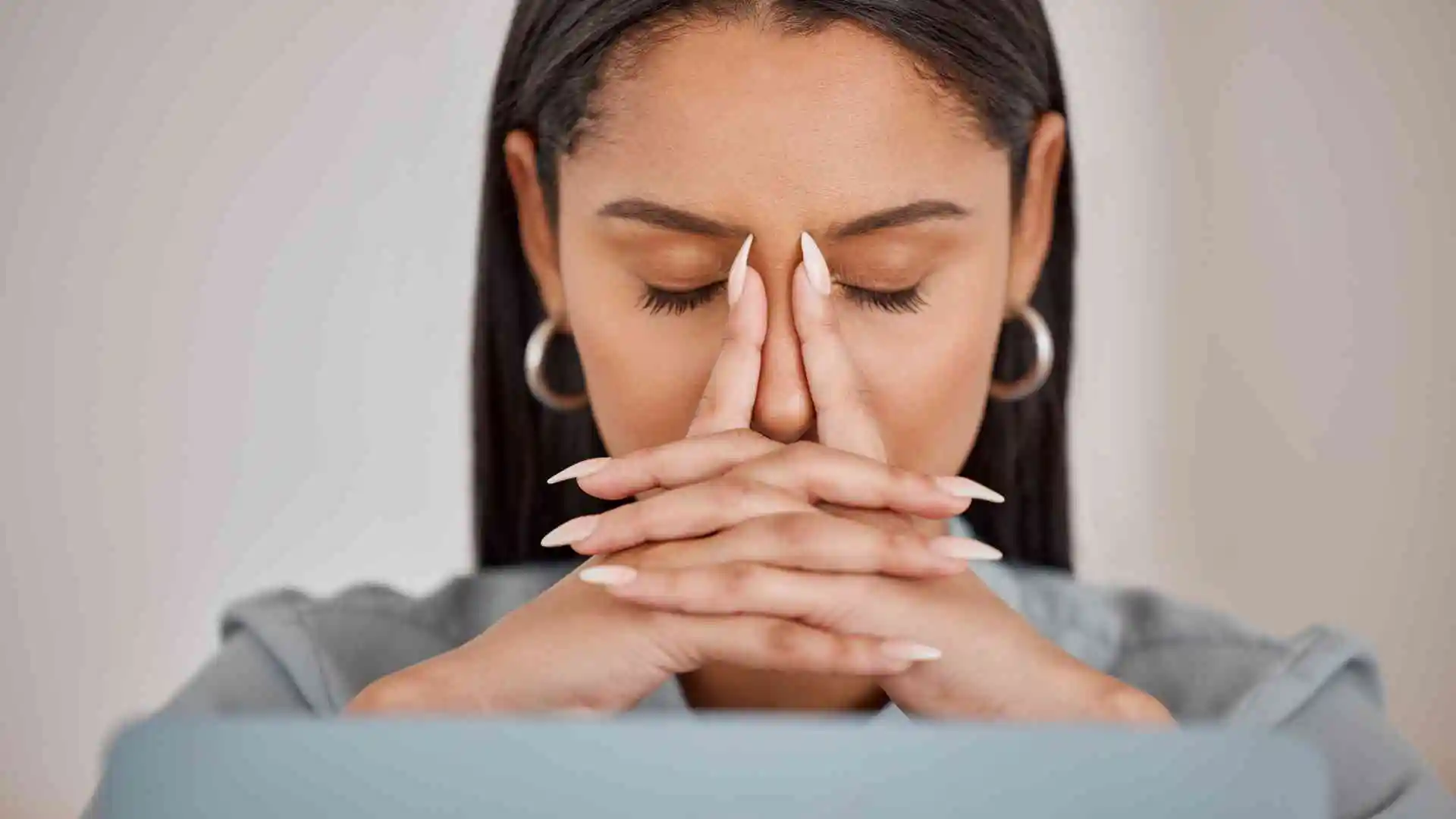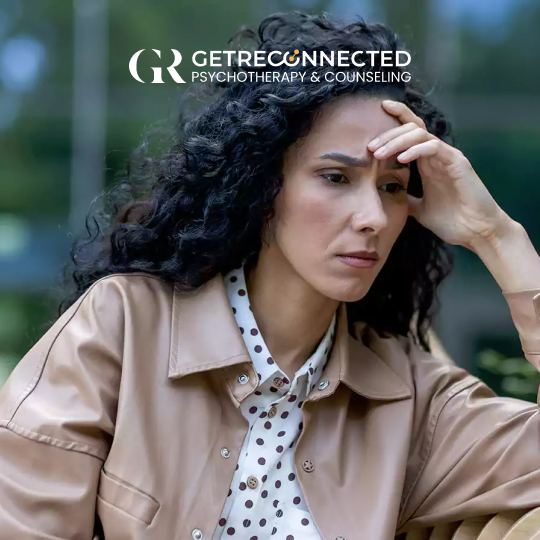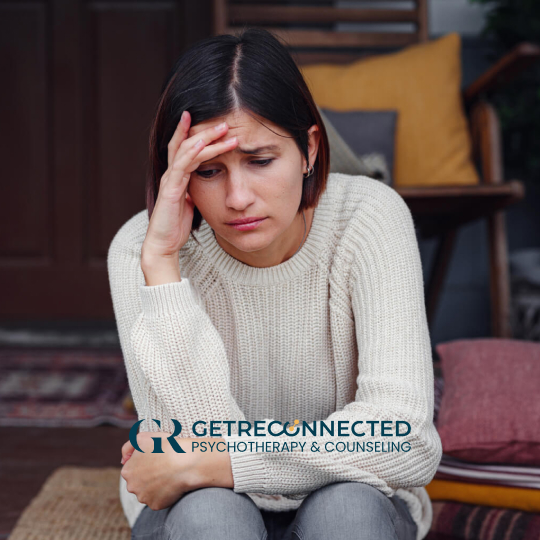Anxiety Therapy in Toronto
Are you constantly worried and have trouble sleeping? Do you feel overwhelmed and struggling in your daily life?
Feeling a bit nervous before a big event, a first date, or a test is normal. A little bit of anxiety can even help us do better by pushing us to focus and get things done.
But sometimes we feel too much anxiety. This kind of anxiety doesn’t help, it just makes us feel stuck, scared, or confused. It sticks around even when everything is okay and there’s nothing to be nervous about. If this sounds like what you’re going through, it might be time to think about getting help for your anxiety.
Fear and anxiety are common emotions experienced by many individuals on a daily basis. Anxiety often arises from an underlying fear of the unknown or uncertainty about the future. This overwhelming feeling can impair one’s ability to think clearly and can lead to excessive worry.
Anxiety may also manifest as a result of past traumas or stressful life events. Such feelings of anxiety can disrupt one’s daily routine and make it challenging to engage in normal activities.
Overview of Anxiety Therapy in Toronto
Welcome to Get Reconnected – a dedicated psychotherapy clinic in Toronto – providing therapy services to residents of Ontario. We are committed to provide services designed to assist and empower you on your path to self-discovery, reconnection, and re-alignment towards your personal and professional growth.
Our skilled team of therapists provide a safe and non-judgmental space where you can address your thoughts, emotions, and behavioral challenges to unlock your potential for the fulfilling and desired life you want.
Did you know?
Neuroscience research shows that our brains have two main ways of feeling anxiety. One way is through the cortex pathway, which is where we think and make sense of things. This pathway can make us feel anxious when we overthink or worry too much.
The other way is through the amygdala pathway, often referred to as the brain’s ‘alarm system’ which plays a key role in triggering immediate fear responses. This pathway can make us feel anxious when we react too quickly to something that isn’t really dangerous (i.e., what we perceive to be dangerous.
At Get Reconnected, we understand these two pathways and can offer guidance on how to handle both pathways of anxiety.We can work on how to slow down your thoughts to help with the cortex pathway and how to feel more calm and safe to help with the amygdala pathway.
Anxiety Symptoms
How Can You Tell If You Have Anxiety?
Anxiety can manifest in different ways, depending on the individual and the situation. It is important to pay attention to the physical and emotional symptoms of anxiety.
Common physical symptoms:
- Racing heart
- Sweaty palms
- Shortness of breath
- Dizziness
- Feeling nauseous
- Feeling muscle tension
- Difficulty sleeping
- Headaches, stomach aches or sore muscles
Common emotional symptoms:
- Excessive worrying or obsessing over things
- Feeling overwhelmed or out of control
- Fear of losing control
- Feeling as if something bad is going to happen
- Feeling scared of being laughed at, losing something, or getting sick
- Difficulty concentrating
- Feeling the need for constant perfection
It’s also common to experience avoidance behaviours, such as avoiding situations or people that make you anxious.
Intense fear or discomfort can manifest through various symptoms during sleep, such as night sweats, nightmares, or restless tossing and turning.
Anxiety or panic often emerges in certain social situations where you might feel scrutinized or judged by others. These surroundings can trigger a sudden surge of intense fear, making it challenging to engage in social interactions.
If this is how you feel, remember, you’re not alone. Lots of people have problems with anxiety, and it’s okay to get help.
At Get Reconnected, we can help you understand your anxiety and learn how to deal with it better, so you can get back to living your life.
Jodi Picoult
Some Causes of Anxiety?
Biological Factors
Traumatic experiences
Physical health
Stressful environments or lifestyles
Substance use
Other mental health disorders
Anxiety takes many different forms
- Generalized Anxiety Disorder (GAD) – tendency to worry excessively and experience fear about everyday situations. GAD is one of the most common anxiety types.
- Panic Disorder (PD) – sudden and intense episodes of panic attacks (fear and physical symptoms such as sweating, shaking, and a rapid heartbeat).
- Social Anxiety Disorder (SAD) – fear and self-consciousness in social events, leading to a tendency to avoid social encounters.
- Specific Phobias – fear and avoidance of specific objects or situations, such as fear of flying, fear of dogs, fear of spiders, social phobia.
Arthur Somers Roche
Ready for Therapy?
We’ll use what we learn in our first session to make a plan that’s just for you.
For more information about our approaches, don’t hesitate to get in touch with us at [email protected]
Anxiety Treatment Options
- Cognitive Behaviour Therapy (CBT) for anxiety
- Exposure Therapy for anxiety
- Acceptance and Commitment Therapy (ACT) for anxiety
- Mindfulness-Based Interventions for Anxiety
Anxiety Therapy Treatments at Get Reconnected Psychotherapy Services
At Get Reconnected Psychotherapy Services, we offer a unique approach to anxiety treatment. We take a mind-body connection approach in sessions, helping you change your relationship with anxiety.
We believe that every individual experiences anxiety differently, so we tailor our approach to each person in order to provide the best possible care.
Here’s what we can help you with:
- Handle stress better
- Feel more relaxed and calm
- Figure out why you feel anxious and what makes it worse
- Feel stronger and more sure of yourself
- Change the way you think to feel better
- Slow down your racing thoughts
- When did you first start feeling anxious?
- How does anxiety affect your life?
- How do you cope with your anxiety now?
Our 8-step Therapy Process
01 Initial Assessment
To begin your journey toward managing anxiety, we’ll start with an initial assessment. This helps us understand your unique challenges and goals, allowing us to tailor our approach to your specific needs.
02 Goal Setting
Together, we’ll set clear and achievable therapy goals. These serve as a roadmap for your treatment journey.
03 Evidence-Based Approaches
Our therapists use a variety of proven techniques such as Cognitive-Behavioral Therapy, Mindfulness, and Exposure Therapy, personalized to your needs and preferences.
04 Consistent Sessions
We offer flexible scheduling for regular therapy sessions, whether weekly or bi-weely, based on your availability and requirements.
05 Active Participation
Your active involvement is key. During sessions, open communication and active participation help us explore your feelings and challenges, facilitating meaningful change.
06 Practical Exercises
We’ll provide practical exercises to reinforce progress. These exercises give you opportunities to apply what you’ve learned outside of therapy.
07 Self-Care Strategies
Together, we’ll identify and implement self-care practices that suit your lifestyle. These strategies empower you to manage stress and prevent anxiety in the long term.
08 Ongoing Evaluation
We regularly assess your progress and adjust our approach as needed to ensure effective anxiety management tailored to your evolving needs. This ongoing evaluation helps us track improvements and refine our strategies.
Our Team

Blog

How To Tell The Difference Between Worry, Stress and Anxiety
How To Tell The Difference Between Worry, Stress and Anxiety Introduction Many of us have often used the terms stress, anxiety, and worry interchangeably, without

Understanding Overthinking: Insights and Practical Ways to Cope
Understanding Overthinking: Practical Ways to Stop Overthinking Introduction If you are reading this and find yourself to be an overthinker, you are most probably aware

Anxiety and Stress: How to Tell Them Apart
Explore the key differences between stress and anxiety, their symptoms, causes, and how to manage each effectively.
Contact Us
Anxiety FAQ's
Anxiety at night, often referred to as nighttime anxiety, can occur for various reasons. During the day, you might have distractions that keep your mind occupied, but at night, in the quiet and stillness, anxious thoughts may become more pronounced. Factors contributing to nighttime anxiety include overthinking, worries about the future, stressors from the day, and hormonal fluctuations.
Social anxiety, also known as social phobia, can be caused by a combination of genetic, environmental, and psychological factors. It often develops in childhood or adolescence and may persist into adulthood. Common contributing factors include a family history of anxiety, negative past social experiences, low self-esteem, perfectionism, and a fear of judgment or embarrassment in social situations.
Supporting a partner with anxiety involves empathy, understanding, and open communication. Here are some steps to help your partner:
- Listen without judgment – encourage your partner to talk about their feelings and concerns.
- Educate yourself – learn about anxiety disorders and their symptoms to better understand what your partner is going through.
- Respect boundaries – respect your partner’s need for space and time alone when they’re feeling overwhelmed.
- Practice patience – understand that progress may be slow, and setbacks are normal. Be patient and supportive throughout their journey.











